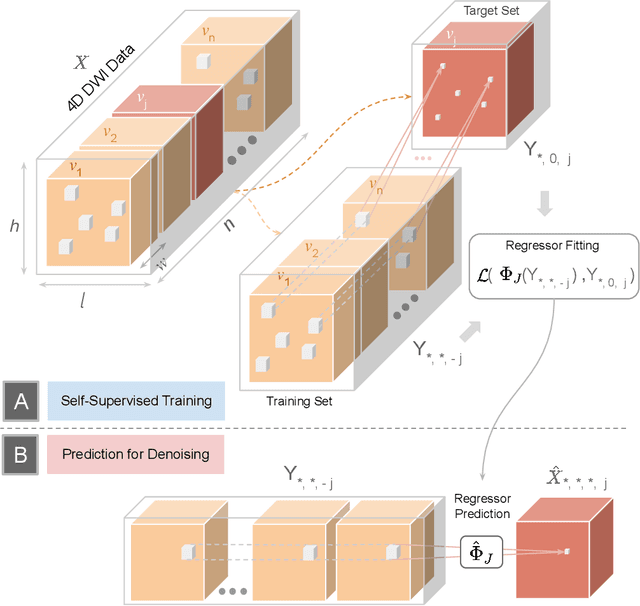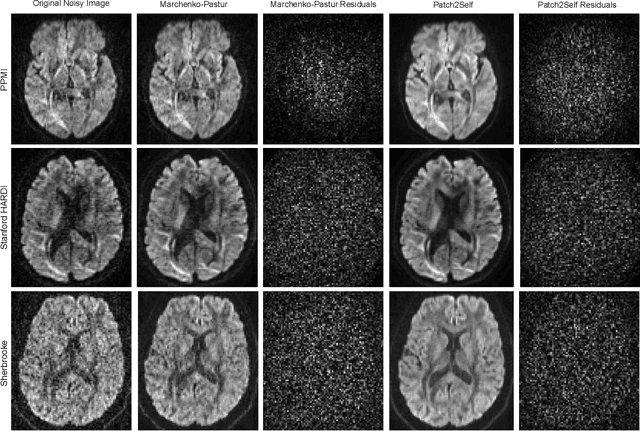Patch2Self: Denoising Diffusion MRI with Self-Supervised Learning
Paper and Code
Nov 02, 2020



Diffusion-weighted magnetic resonance imaging (DWI) is the only noninvasive method for quantifying microstructure and reconstructing white-matter pathways in the living human brain. Fluctuations from multiple sources create significant additive noise in DWI data which must be suppressed before subsequent microstructure analysis. We introduce a self-supervised learning method for denoising DWI data, Patch2Self, which uses the entire volume to learn a full-rank locally linear denoiser for that volume. By taking advantage of the oversampled q-space of DWI data, Patch2Self can separate structure from noise without requiring an explicit model for either. We demonstrate the effectiveness of Patch2Self via quantitative and qualitative improvements in microstructure modeling, tracking (via fiber bundle coherency) and model estimation relative to other unsupervised methods on real and simulated data.
 Add to Chrome
Add to Chrome Add to Firefox
Add to Firefox Add to Edge
Add to Edge